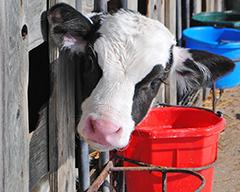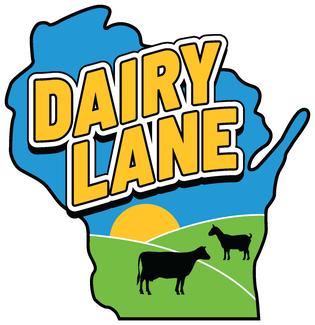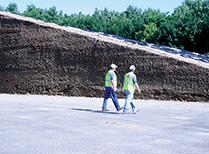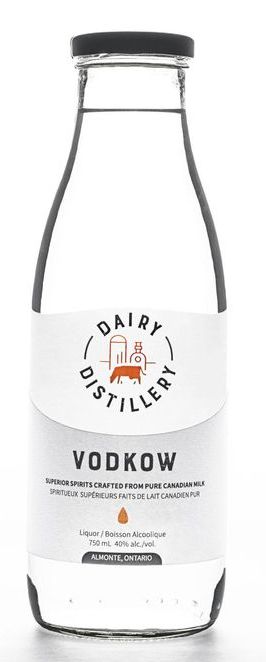|
Place Your Own Text Here.
|
|
|
|
Brought to you by Dairy's Professional Development Organization®
|
|

PDPW PODCAST WEEKLY.
Click
here
to listen to the most recent episode.
You won't want to miss a minute - subscribe now so each week's episode is delivered to your inbox. Podcasts are also available on iTunes and Spotify.
|
Opportunities to learn...

DAIRY MANAGER INSTITUTE KICKS OFF IN AUGUST with a targeted training course to develop and refine key management skills. This intensive development program for dairy producers and allied agribusiness professionals will offer self-study, peer-to-peer learning and ongoing support networks in an online and in-person format. The program starts with a 2-day session Aug. 13-14, 2019 in Madison with a follow-up session to be held Dec. 10, 2019. Learn more and register
here
, or contact PDPW at 800-947-7379 or
mail@pdpw.org
for more information.
 MARK YOUR CALENDAR FOR 2019 PDPW ACE ON-FARM TWILIGHT MEETINGS to be held on August 26, 27, 28 and 29 from 6:00 to 8:30 p.m. in Newton, Stratford, Maiden Rock, and Lancaster, Wis., respectively. Each Agricultural Community Engagement® (ACE) On-Farm Twilight Meeting will feature a 60-minute farm tour at 6:00 p.m. with ice cream to follow, concluding with open discussions between local elected officials, educators, community leaders, dairy farmers and more. Click here for more details. MARK YOUR CALENDAR FOR 2019 PDPW ACE ON-FARM TWILIGHT MEETINGS to be held on August 26, 27, 28 and 29 from 6:00 to 8:30 p.m. in Newton, Stratford, Maiden Rock, and Lancaster, Wis., respectively. Each Agricultural Community Engagement® (ACE) On-Farm Twilight Meeting will feature a 60-minute farm tour at 6:00 p.m. with ice cream to follow, concluding with open discussions between local elected officials, educators, community leaders, dairy farmers and more. Click here for more details.
CHECK OUT DAIRY ADVANCE.
- Find, track and report your Continuing Education (CEs). Take credit for the trainings you attend! Get more details at
www.DairyAdvance.org
.
|
For your dairy...
 CONSIDERING FEEDING WHOLE MILK TO CALVES
to reduce milk replacer cost? As many producers continue to look for ways to trim expenses, switching to whole milk is getting more attention. An article from Penn State Extension provides a list of do's and don'ts for successfully feeding whole milk, including: CONSIDERING FEEDING WHOLE MILK TO CALVES
to reduce milk replacer cost? As many producers continue to look for ways to trim expenses, switching to whole milk is getting more attention. An article from Penn State Extension provides a list of do's and don'ts for successfully feeding whole milk, including:
- Do alleviate financial burden of milk replacer expenses if non-salable milk is available from your herd.
- Do be aware that whole milk is 100% digestible in the dairy calf.
- Do keep whole milk temperatures between 90 and 100 degrees Fahrenheit when feeding to calves.
- Don't forget to provide clean, fresh water daily.
REMEMBER CALVES DURING SUMMER HEAT AND HUMIDITY.
While it is critical to keep the milking herd comfortable during heat waves, taking steps to cool calves will deliver both short and long-term health benefits. Calves perform best when the temperature is between 55 and 78 degrees. Several beat-the-heat strategies include:

- Position calf hutches to face east
- Provide calves with shade and ability to move around
- Make clean water available daily; water from milk or replacers is not enough
- Consider feeding more milk in response to offset decreased starter intake
- Keep bedding dry for optimal fly control
Learn more in the full article from Dairy Herd Management
here
.
POTENTIAL FOR MAP PROTEIN TO PREVENT JOHNE'S DISEASE
is the focus of work underway at the USDA Agricultural Research Service at the National Animal Disease Center. Researchers took a type of protein from the surface of
Mycobacterium avium
subspecies
paratuberculosis
(MAP), the bacterium that causes Johne's disease, and devised a new procedure to deliver it as a vaccine in cattle. Future studies will focus on ways to formulate and administer the peptide, then conduct scaled trials. Ultimately, the research could open the door to a new way of preventing Johne's disease without interference with bovine tuberculosis tests. Read more
here
.
|
 VOLUNTEERS NEEDED FOR "DAIRY LANE" AT WISCONSIN STATE FAIR
; fair admission and parking is included for those who work a four-hour shift. The Wisconsin State Fair Dairy Promotion Board is looking for farmers and industry professionals, and youth accompanied by an adult, who will enthusiastically share Wisconsin's dairy story by engaging with fairgoers at a variety of stations. Formerly known as the House of Moo, the Dairy Lane exhibit features educational and interactive displays to teach fairgoers of all ages about Wisconsin's vibrant dairy industry. To sign up for a four-hour time slot at Dairy Lane, click
here
. VOLUNTEERS NEEDED FOR "DAIRY LANE" AT WISCONSIN STATE FAIR
; fair admission and parking is included for those who work a four-hour shift. The Wisconsin State Fair Dairy Promotion Board is looking for farmers and industry professionals, and youth accompanied by an adult, who will enthusiastically share Wisconsin's dairy story by engaging with fairgoers at a variety of stations. Formerly known as the House of Moo, the Dairy Lane exhibit features educational and interactive displays to teach fairgoers of all ages about Wisconsin's vibrant dairy industry. To sign up for a four-hour time slot at Dairy Lane, click
here
.
For more information on the Dairy Lane exhibit, including where to find it on the grounds and other State Fair details, click
here
.
 PREVENT INJURIES: SAFELY MANAGE BUNKER SILOS AND SILAGE PILES
by providing training to all employees and developing safety protocols. Tractor and truck rollovers, runovers, falls and engulfments are some of the most common injuries with bunker silos and silage piles. Ensuring that there are enough people on the silage team to safely perform all tasks while taking adequate breaks is also important. PREVENT INJURIES: SAFELY MANAGE BUNKER SILOS AND SILAGE PILES
by providing training to all employees and developing safety protocols. Tractor and truck rollovers, runovers, falls and engulfments are some of the most common injuries with bunker silos and silage piles. Ensuring that there are enough people on the silage team to safely perform all tasks while taking adequate breaks is also important.

WORLDWIDE DEMAND FOR BEEF CONTINUES TO GROW
according to the USDA and National Cattlemen's Beef Association (NCBA). Overall beef demand has grown 15% since 2012. The annual NCBA foodservice survey shows that 97% of U.S. restaurants offer beef on their menu, which increases traffic by 45%. Demand also continues to increase for U.S. beef in key export markets including South Korea, Taiwan and Japan. Read the full article for more information.
CANADIAN DISTILLERY MAKING "VODKOW" FROM MILK PERMEATE. A micro-distillery in Ontario, Canada, is requesting that Canadian authorities change existing policies to allow all products distilled from agricultural products to be labeled as vodka. The distillery uses milk permeate to distill its liquor. Read the full story here and learn about another brand of milk vodka distilled by an English dairy farmer here.
|
For your business mind...
IDENTIFYING FACTORS MOST IMPORTANT TO FARM PROFITABILTY
was the focus of University of Minnesota's Center for Farm Financial Management programs as they analyzed records of participating dairy farms. As milk production per cow increases across all dairy farms, focus on margin and cost control makes the difference. Analysis of records from 2015 through 2018 indicated five characteristics for high-profit farms, including:

- More milk sold per worker
- Higher gross margin per cow
- Higher milk value (likely driven by components and quality)
- Lower feed costs per cow
- Better cost control
Read more in the full article from MILK Business
here
.
 THE DIFFERENCE BETWEEN URGENT AND IMPORTANT
can help you prioritize tasks and lead to better time management. An "urgent" task is one that demands immediate attention while an "important" task will add significant value to the organization. Creating to-do lists can help focus on tasks that are both urgent and important each day while allowing you to carve out time for important tasks such as professional development, documenting processes and systems, and planning. Read the full article with examples of each type of task here.
THE DIFFERENCE BETWEEN URGENT AND IMPORTANT
can help you prioritize tasks and lead to better time management. An "urgent" task is one that demands immediate attention while an "important" task will add significant value to the organization. Creating to-do lists can help focus on tasks that are both urgent and important each day while allowing you to carve out time for important tasks such as professional development, documenting processes and systems, and planning. Read the full article with examples of each type of task here.
 BUILDING TEAMS ACROSS GENERATIONS
is important to the successful transition of family-based businesses, according to an article from The Family Business Consulting Group. The strongest multi-generational businesses typically have strong team mentality and group identity, which is based on the members having good personal relationship beyond the workplace.
Key elements to building productive multi-generational teams are vulnerability, trust, shared experience, familiarity, and education. Learn more about each element and ideas for family business team building in the full article
here. BUILDING TEAMS ACROSS GENERATIONS
is important to the successful transition of family-based businesses, according to an article from The Family Business Consulting Group. The strongest multi-generational businesses typically have strong team mentality and group identity, which is based on the members having good personal relationship beyond the workplace.
Key elements to building productive multi-generational teams are vulnerability, trust, shared experience, familiarity, and education. Learn more about each element and ideas for family business team building in the full article
here.
|
"Management is about arranging and telling. Leadership is about nurturing and enhancing."
--- Tom Peters
|
 Meet fellow PDPW members... Meet fellow PDPW members...
BREY CYCLE FARM - Jacob & Lauren Brey, Tony and Moriah Brey and family.
Located near Sturgeon Bay, Wis., Brey Cycle Farm traces its beginnings to 1904 when George Brey, Sr., established the dairy. His grandson Bill Brey, with his wife Clarice, raised their five children on the farm. In July 2016, sons Tony and Jacob took over ownership.
Tony manages the finances with his wife Moriah and handles the herd's feeding program. Jacob takes care of crops and manages the custom-heifer-raising business. The farm includes 460 registered Holstein milking cows, 500 heifers, some beef cattle and 1,200 acres of owned and rented land, on which they raise corn, alfalfa, wheat, sorghum and cover crops. In addition to managing the custom-heifer-raising business they launched in 2016, the Brey families and their employees do the majority of the farm work.
Working together on general herd management decisions, the brothers enjoy the opportunity to sell high-quality genetics and send bulls to artificial insemination companies as well as selling directly to various farms. They also perform all the herd's ultra-sounding, flushing and embryo-transfer work, rather than paying an outside source. "It's nice to have that income stream without the added cost of paying for those services," Moriah said.
Brey Cycle Farms is one of four farms in the Door-Kewaunee Demonstration Farm Network, a partnership between The Wisconsin Department of Agriculture, Trade and Consumer Protection, the USDA-Natural Resources Conservation Service and Peninsula Pride Farms. As a demonstration farm, they test new technologies and share information with others about practices such as low-disturbance manure injection, no-till cropping and planting cover crops.
Jacob sees their approach to responsible stewardship as a piece in the puzzle of showing the public the extent to which modern dairy farmers care for the water, land and air. "Today's farms are continually working to improve in regard to environmental stewardship and animal welfare," he said. "Everything we do on our farm is for the good of the land and animals. If we do the right things to care for our land and our animals, we'll have a successful business - which supports our families, employees, suppliers and the other community businesses we work with."
Tony agrees; "Our goal is to have an impact in our community through our involvement in organizations - agricultural and others. We've continued to learn new things and challenge ourselves to remain open-minded. That's one of the keys to success in this business."
Attending PDPW meetings is one way the Breys continue to learn. "Tony and I have been involved in PDPW since we were college students," Moriah said. "We look forward to the PDPW Annual Business Conference every year; it's a way to learn from speakers and presenters. We also find the networking opportunities and the ability to learn from our peers and mentors in an informal setting is just as valuable. The business conference offers a platform for both."
The Breys also believe in giving back to the community, whether by mentoring and coaching students and local youth or by opening their doors to the public. In 2018, Brey Cycle Farm was a host for the Agricultural Community Engagement® (ACE) On-Farm Twilight Meeting.
"The ACE Twilight Meeting was a valuable event for our farm to host because it brought together people in our community to have a conversation about topics important to all of us," Lauren said. "We appreciated the opportunity to host local legislators, our neighbors and community leaders to share what we do on our farm and discuss how we can all work together to make our local community the best it can be."
|
|
A BIG Thank You...
TO THE PDPW SPONSORS who are supporting your professional development organization! As a producer-led group, we extend a heart-felt "Thank You!" to those who stand alongside our nation's dairy farmers.
Our sponsors' support allows PDPW to execute best-in-class producer training and has enabled us to become the go-to and trusted resource for unified outreach initiatives. If you or a company you know is interested in participating as a sponsor, please contact us at abonomie@pdpw.org or call 800-947-7379.
See the full list of generous sponsors
here.
|
|
PDPW Education Calendar
| July 16 |
Dairy Innovation Tour: Fremont, Wis.
|
|
August 13-14
|
Dairy Managers Institute™: Madison, Wis.
|
| August 26, 27, 28, 29 |
Agricultural Community Engagement (ACE) Twilight Meetings:
Newton, Stratford, Maiden Rock, Lancaster, Wis.
|
| September 14-27 |
PDPW International Dairy Tour: Germany & Holland
|
| November 19, 20, 21 |
Calf Care Connection: Locations TBD |
| December 4 & 5 |
PDPW Dairy Insight Forum (formerly Food & Policy Summit): Madison, Wis. |
| December 10 |
Dairy Managers Institute™: Madison, Wis.
|
| January 14-16, 2020 |
Managers Academy: Location TBD |
| March 17-18, 2020 |
Cornerstone Dairy Academy: Alliant Energy Center, Madison, Wis. |
| March 18-19, 2020 |
PDPW 2020 Business Conference: Alliant Energy Center, Madison, Wis. |
Take a digital look at all the work PDPW is doing these days!
800-947-7379
|
|
|
|
|